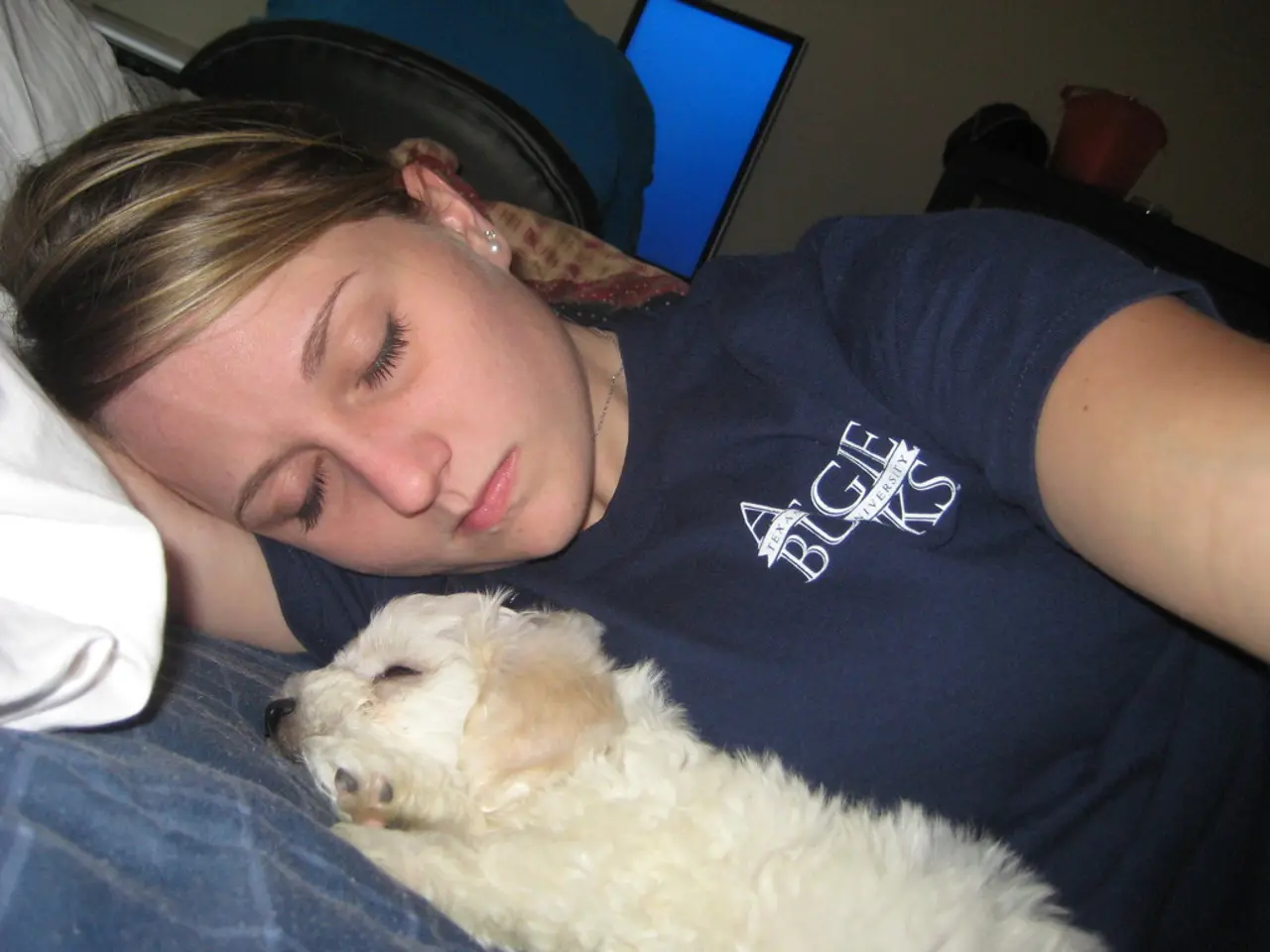Sharing a Bed with Your Canine Companion: Scientific Opinions Considered
Recent studies have delved into the impact of co-sleeping with dogs on human sleep quality, yielding mixed results.
In a study conducted by Canisius College, it was found that women who slept with their dogs experienced fewer disturbances and felt more secure compared to those sleeping with cats or humans. This could be attributed to the release of oxytocin, a hormone that enhances relaxation, which is stimulated by the presence of a pet.
On the other hand, a survey by the Mayo Clinic revealed that about half of pet owners who share their beds with animals are woken nightly by their pets, and noises like dog snoring or barking can disrupt rest. Another study from CQ University found that people sleeping with pets took longer to fall asleep, though total sleep hours and next-day tiredness showed little difference compared to those not sleeping with pets.
Sleep efficiency among pet co-sleepers is generally slightly lower than the normal range. People sleeping with dogs in bed average about 80% sleep efficiency, compared to the normal range of 85-89%. This suggests a reduction in sleep quality, but the impact may vary depending on individual tolerance, the dog's behaviour, and other factors.
However, it's important to note that the health risk of co-sleeping with a dog is minimal and manageable with basic cleanliness. Smart hygiene practices to follow include wiping paws after walks, using a separate blanket or designated sleeping spot, bathing the dog regularly, and keeping vaccinations up to date.
For most people, having a dog in the bedroom, whether on the bed or nearby, does not significantly disrupt sleep. In fact, for many, the emotional comfort and security provided by their canine companion can outweigh the occasional disturbance.
In a study on veterans with PTSD, it was found that sleeping with a service dog significantly improved sleep quality, decreased nightmares, and increased time spent in deep sleep. For people struggling with insomnia or light sleep, the few minutes of light tossing and turning could be the thin line between waking refreshed or waking frustrated.
For immunocompromised individuals or those with open wounds, it's not recommended to let dogs sleep in the bed. But for healthy adults, the risk of disease transmission is extremely low when co-sleeping with a dog, unless they are visibly dirty, have parasites, or are ill.
In conclusion, sleeping with dogs tends to offer emotional comfort and security that can improve sleep for some people, but may also lead to more awakenings and longer time to fall asleep due to pet-related disturbances. The net effect depends on personal and situational factors. Future research should draw from larger, more diverse populations and consider comparisons to pet-free sleepers to give a clearer picture.
- Despite the potential minor disruptions caused by pets during sleep, such as noises or disturbances, many individuals find the emotional comfort and security provided by their canine companions outweighs these minor inconveniences.
- In contrast to the findings that suggest co-sleeping with dogs might affect sleep efficiency, a study on veterans with PTSD indicated that sleeping with a service dog significantly improved their sleep quality, decreased nightmares, and increased time spent in deep sleep.




